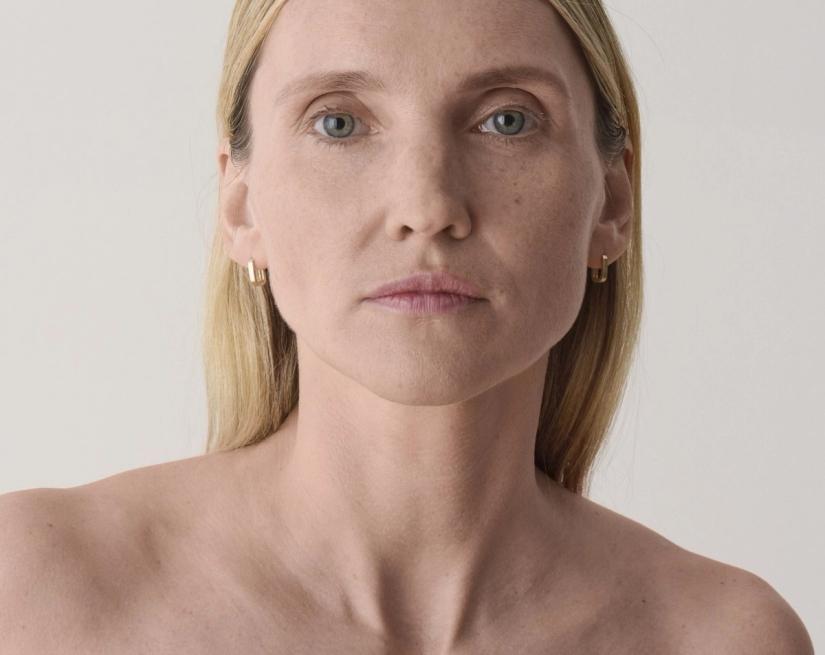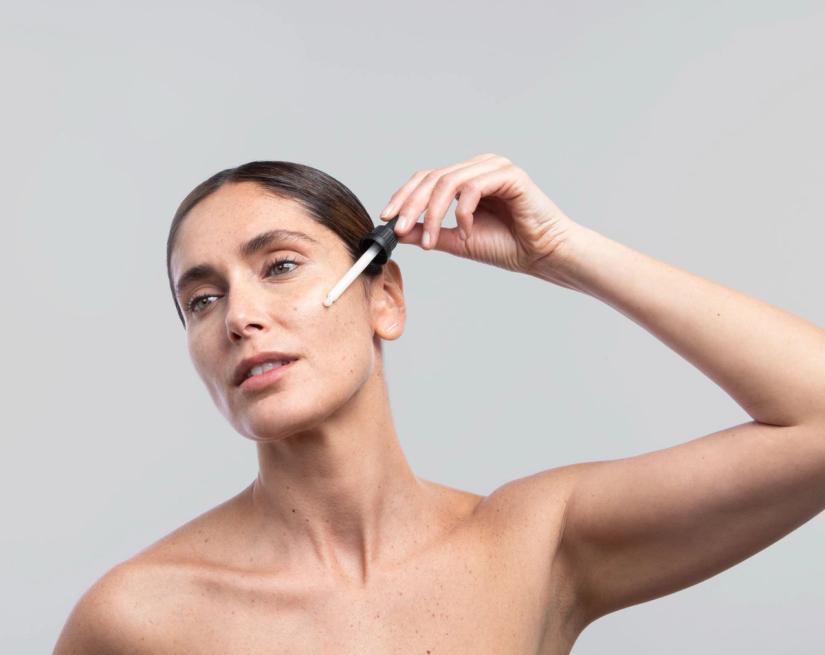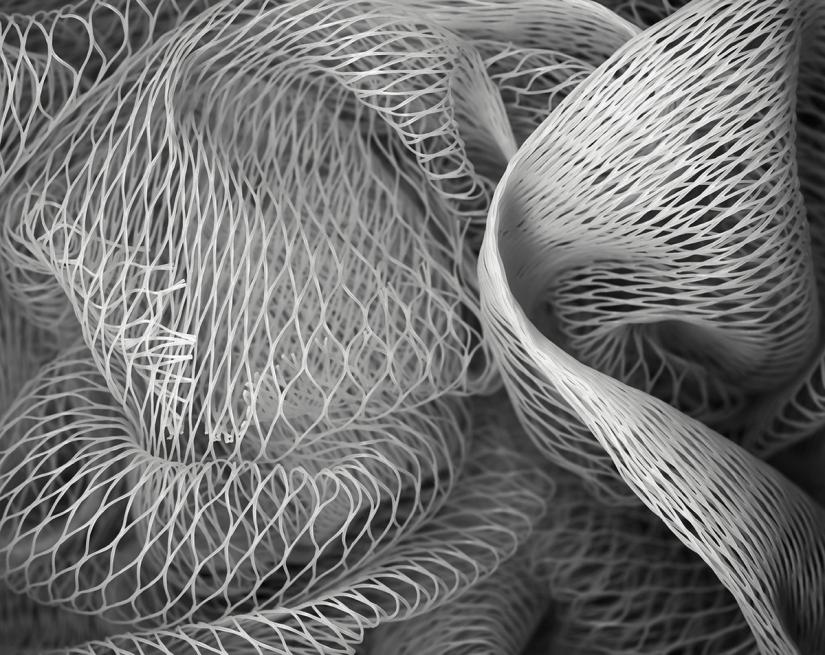skin care
Understanding Skin Longevity: The Science of Aging Well
Eve Mérinville | Corporate RD Excellence & SC RD and Innovation Director
13 min read
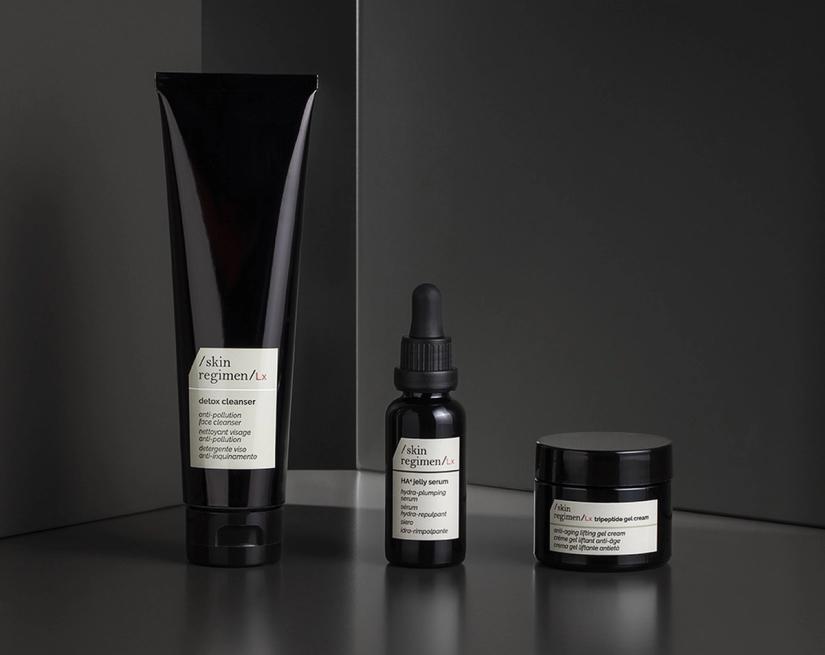
Aging is an inevitable part of life and is triggered by a complex and multifactorial process, resulting from an interplay of internal and external factors that include genetics and hormonal changes as well as pollution and lifestyle choices. This intricate process underscores the necessity of addressing accelerated aging from a young age, emphasizing proactive measures to counteract its effects and preserve skin longevity.
To accomplish this, it is first critical to fully understand what is meant by “skin longevity.” In order to do so, the following article will deep dive into this concept and will illustrate how Comfort Zone’s laboratory has developed targeted solutions to preserve it. From understanding the underlying science to adopting effective skincare routines, we will explore how to support skin longevity, emphasizing the importance of proactive and preventive care.
The Shift in Focus: Prevention Over Combat
Even today, skin longevity is often confused with the concept of anti-aging skin care, but there are important distinctions. Anti-aging focuses on addressing the visible signs of aging we see in the mirror. In contrast, skin longevity targets the root causes of aging at the molecular level to help prevent or minimize these signs.
In recent years, the common interest towards skincare and the aging process has shifted from merely combating skin aging to adopting prevention solution, aiming to maintain skin health for as long as possible. The scientific pursuit of vibrant health in advanced age is ever-present, with the emphasis moving away from extending lifespan to extending health span: we no longer need to anti-age; we just need to age well. The desire to stay and appear youthful underpins modern skincare philosophy, which centers on maintaining skin health and, therefore, skin longevity, for as long as possible.
But how to achieve this? For both skin and body, longevity it is not just about lifespan; it’s about the number of years spent in optimal health. This encompasses also the health and appearance of our skin. Achieving and maintaining youthful skin for an extended period involves effective skin care combined with smart dietary habits, health practices, and lifestyle choices. Indeed, it is possible for your skin to appear younger than your chronological age by reducing you own biological age instead.
Understanding Biological Age vs. Chronological Age: A Key to Skin Longevity
You may have heard about biological age and chronological age, but what do these terms really mean, and why are they important for your skin? Chronological age is straightforward—it’s just the count of years lived, marked by each birthday. On the other hand, biological age refers to how old your body and its cells actually feel and function, influenced by the cumulative damage they've sustained over time.
Compared to chronological aging, biological aging is much more complex and is shaped by genetics, environmental factors such as sun exposure and pollution, and lifestyle choices like diet, exercise, social interactions, and supplementation. These factors can modify gene expression through epigenetic changes, affecting crucial processes like collagen and elastin production, which are essential for maintaining youthful skin.
Within this perspective, skin longevity aims to slow down biological aging by addressing the underlying cellular and molecular damage. This includes targeting DNA damage, which many researchers believe is a central cause of aging. DNA, the blueprint of all cellular functions, can be affected by both internal and external factors, impacting everything from cell repair to replication. By minimizing DNA damage and promoting repair mechanisms, longevity skin care can help preserve your skin's youthful appearance, regardless of your chronological age.
The Science Behind the Longevity Complex™
In 2012, to ensure an innovative approach to skin longevity, Comfort Zone - with the support of a scientific committee of doctors and researchers - delved into aging and its acceleration and launched the exclusive Longevity Complex™.The urge of constant innovation and the goal of making the benefits of this approach more and more significant has led in 2024 to the formulation of /skin regimen/Lx, enhanced and improved across efficacy, naturality, sustainability and pleasantness of use.
This complex made of organic botanical extracts and carnitine, has been demonstrated to offers a beneficial action against internal and external lifestyle-related factors and combat the consequences of accelerated aging by promoting cellular longevity, therefore, delaying cell aging rate by 80%.*
Specifically, this proprietary complex would counteract the effects of the seven main external factors, sun exposure, pollution, smoking, improper diet, poor sleep quality, sedentary lifestyle and stress, that fall within the framework of the exposome – the totality of environmental exposures to which an individual is exposed - and disrupt the four cellular processes essential for maintaining youthful skin.
- Oxidation: The attack of free radicals on cellular structures makes them unstable.
- Glycation: Sugars attack protein structures, such as collagen, resulting in loss of tone.
- Inflammation: Excessive and chronic defensive response of cells.
- Incorrect DNA Methylation: DNA replication and therefore cellular information do not occur optimally.
When these crucial processes become unbalanced, they contribute to accelerated aging.
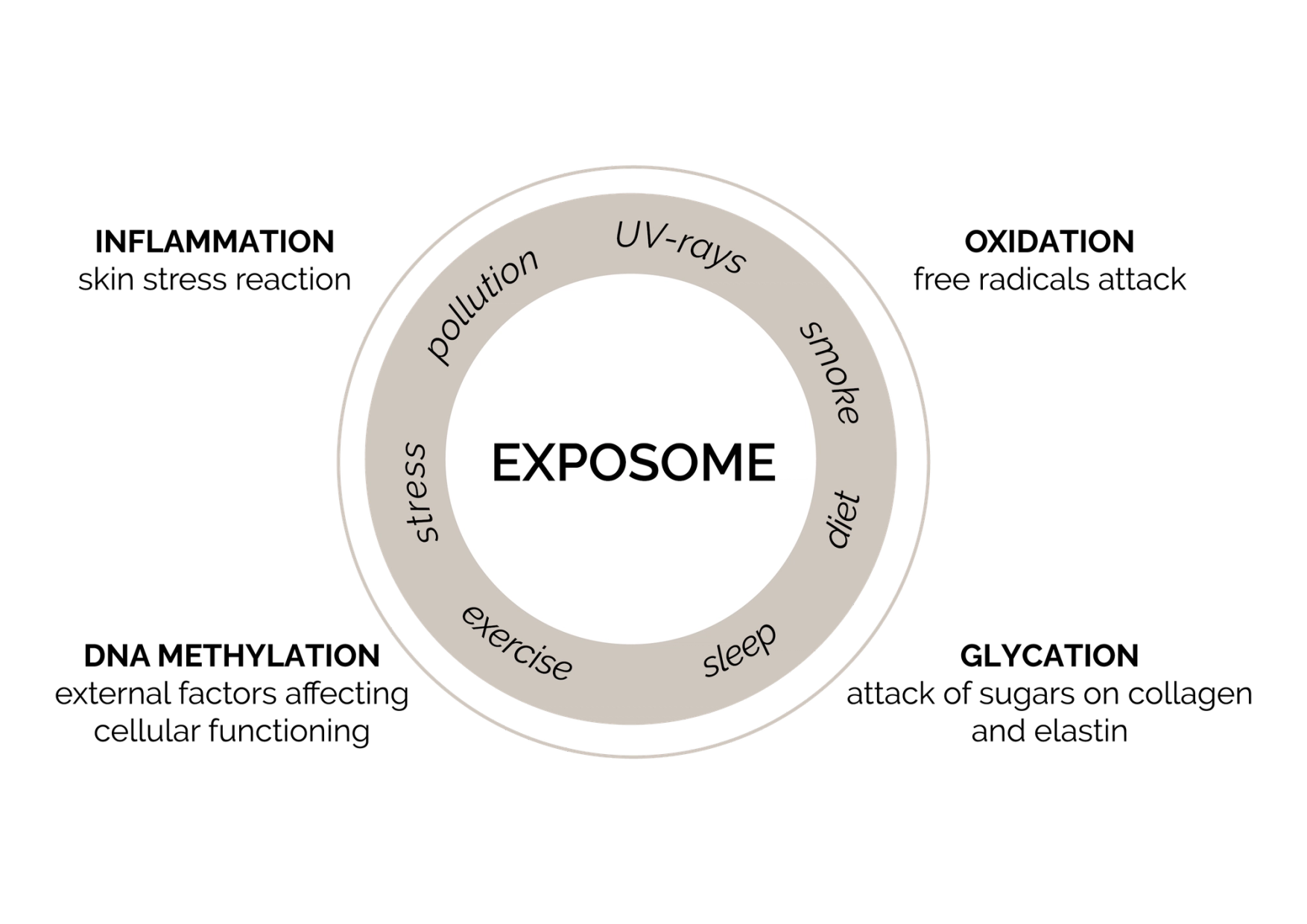
Measuring the Effectiveness of Longevity Complex™
Commitment to constant innovation has led Comfort Zone's laboratories to enhance the beneficial effects of Longevity Complex™ in slowing down the aging process associated with the exposome.We approached and finalized a in vitro test that simulates daily life exposure to better reflect real-world conditions. This test allows us indeed to evaluate the effects of the exposome factors on specific Longevity markers. By contextualizing our efficacy studies in an environment that mirrors everyday challenges, we can more accurately demonstrate the protective and rejuvenating capabilities of our productsThis protocol aimed to compare the aging rate of cells with and without the effects of the exposome and to quantify how the presence of Longevity Complex™ reduces its effects.
The study was conducted in vitro by monitoring the behavior of dermal cells: fibroblasts. Fibroblasts of different ages were selected to obtain a comprehensive understanding of the effects that the exposome can generate at different stages of aging. Fibroblasts aged 20, 35, and 50 were exposed to three representative factors of the exposome: UV radiation, urban pollution, and cortisol.
The enzyme β-galactosidase was chosen as an aging indicator, as it is one of the main longevity markers, with its expression increasing as cells age. The results clearly showed the impact of the exposome in accelerating aging: the β-galactosidase enzyme increased at all ages. However, this effect was significantly mitigated by the Longevity Complex™, which reduced its presence and help reduce the rate of cellular aging by 80%. *
The Importance of Finding a Tailored Routine
It is important to remember that not all skin ages in the same way or under the same conditions. This is why a personalized routine that allows for the combination of different products tailored to individual skin needs is optimal to prevent the aging process, mitigate its impact, and ensure longer-lasting skin health. These approaches work together to enhance skin tone, hydration, and elasticity. Effective skincare involves a multi-step process: detox, power and treat. Additionally, achieving healthy skin requires exfoliating with keratolytic agents, such as alpha hydroxy acids or vitamin A derivatives, to stimulate cell renewal and improve the skin's texture.
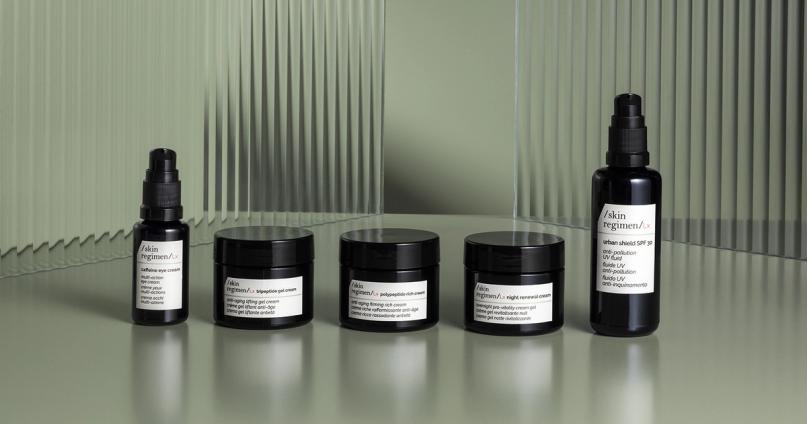
The new /skin regimen/Lx
From continuous innovation and the goal of maximizing skin longevity comes the new /skin regimen/Lx line. The offer has been renewed and improved thanks to the enhanced Longevity Complex™ and the introduction of 14 new potent formulas, all tested individually, and grouped into 3 steps to enable a personalized regimen, tailored to each individual’s unique aging pattern and skin concerns and grouped as follow:
| 1. DETOX | 2. POWER | 3. TREAT | |
| It involves deep cleansing, purification, and preparation of the facial skin to better receive subsequent treatments. | With concentrated formulas aimed at correcting specific skin issues and needs for regeneration and achieving visible and lasting results. | For skin hydration and tone protection. |
Having tested the combination of our three hero products DETOX CLEANSER, HA⁴ JELLY SERUM, TRIPEPTIDE GEL CREAM, we can confirm that their effectiveness is maximized when applied in the same routine.
Detox Cleanser
Anti-pollution face cleanser
The new /skin regimen/Lx Detox Cleanser is an anti-pollution face cleanser ideal for all skin types, especially beneficial for those exposed to urban environments. This foaming cream, formulated with gentle surfactants, glycerin, and betaine, maintains skin balance while the Longevity Complex™ effectively removes makeup, SPF, and urban pollution, leaving the skin clean and silky.
HA⁴ Jelly Serum
Hydra-plumping concentrate
The new /skin regimen/Lx HA⁴ Jelly Serum is a hydra-plumping concentrate with three forms of Hyaluronic Acid—Micro, Macro, and Cross-Linked—combined with Snow Mushroom extract, which mimics the action of Hyaluronic Acid. These active ingredients lock water into the skin at various levels, restoring and preserving hydration.
Tripeptide Gel Cream
Anti-aging lifting gel cream
The new /skin regimen/Lx Tripeptide Gel Cream, is a face cream, formulated with Palmitoyl Tripeptide-5, Ectoin, and the exclusive Longevity Complex™.Particularly indicated for those with wrinkles, signs of aging, stress, and fatigue. This advanced formula provides comprehensive protection against environmental stressors, preserving and improving skin hydration and tone for a younger-looking, healthier complexion.
Clinical Benefits of the new /skin regimen/Lx
The benefits of /skin regimen/Lx have been confirmed by instrumental clinical tests conducted by an independent laboratory. 40 participants used the DETOX CLEANSER, HA⁴ JELLY SERUM, and TRIPEPTIDE GEL CREAM products for 28 days, morning and evening. The study monitored six crucial parameters for skin longevity, all strongly linked to physiological and exposome-induced skin aging:
- Hydration
- Skin Firmness
- Elasticity
- Wrinkle Depth
- Smoothness
- Radiance
The proposed routine showed a statistically significant improvement in all six parameters in just 28 days. Wrinkles decreased by 15.5%**, demonstrating the effectiveness of the /skin regimen/Lx line in promoting skin longevity.
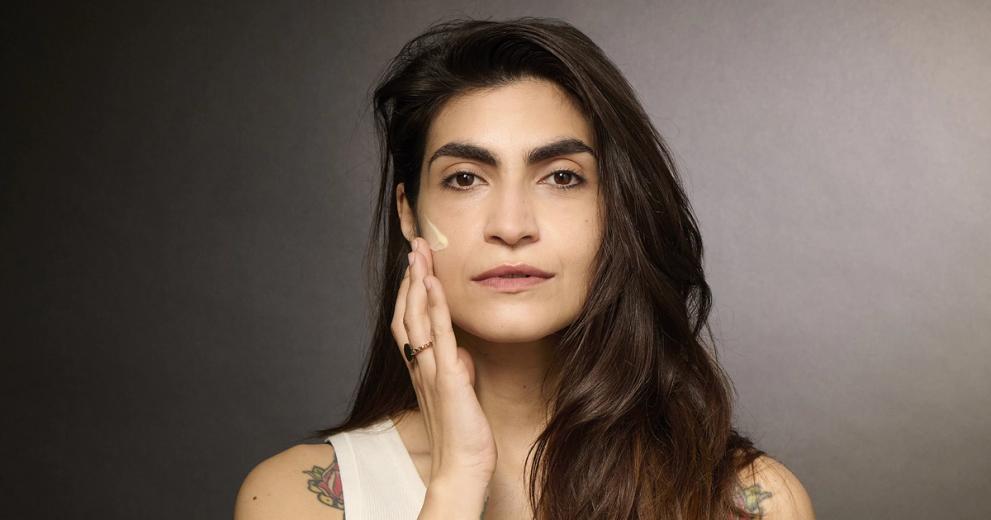
Conclusion
Each skin type has unique needs and reacts differently to external stressors. Therefore, combining different products that target specific concerns can significantly enhance the effectiveness of the skincare and promote skin longevity. The new / skin regimen /Lx featuring the Longevity Complex™ is the result of advanced scientific research, specifically designed to address and counteract the processes that contribute to accelerated skin aging.
This personalized routine ensures that the skin remains youthful, healthy, and vibrant for a longer period. Investing time and effort into understanding one's skin and selecting the right products is a proactive step towards achieving optimal skin health and aesthetics, ultimately leading to a more confident and radiant self.
*Independent laboratory, in vitro test of the ingredient on fibroblasts, B-galactosidase quantification.**Independent laboratory, instrumental evaluation, 40 women, 28 days of use of DETOX CLEANSER, HA4, JELLY SERUM, TRIPEPTIDE GEL CREAM.
